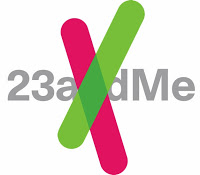The Food and Drug Administration (FDA) sent a WARNING letter to the CEO of 23andMe because the company is illegally marketing its 23andMe Saliva Collection Kit and Personal Genome Service (PGS).
“This product,” says FDA, “is a device within the meaning of section 201(h) of the FD&C Act, 21 U.S.C. 321(h), because it is intended for use in the diagnosis of disease or other conditions or in the cure, mitigation, treatment, or prevention of disease, or is intended to affect the structure or function of the body.”
Recall that Genentech teemed up with 23andMe — a personal genetics firm — to collect spit from volunteers to find out why people respond differently to Avastin — Genentech’s expensive (up to $100,000 per year per patient) drug for the treatment of metastatic colorectal cancer, among others (see “Spit for Research: Will Genentech’s Online Promotion Succeed?“).
The author of the letter — Alberto Gutierrez, Director of FDA’s Office of In vitro Diagnostics and Radiological Health — seems pretty miffed at 23andme. You might even say he’s “spitting mad” as indicated by the tome of the letter. Also,
“FDA has spent significant time evaluating the intended uses of the PGS to determine whether certain uses might be appropriately classified into class II, thus requiring only 510(k) clearance or de novo classification and not PMA approval, and we have proposed modifications to the device’s labeling that could mitigate risks and render certain intended uses appropriate for de novo classification. Further, we provided ample detailed feedback to 23andMe regarding the types of data it needs to submit for the intended uses of the PGS. As part of our interactions with you, including more than 14 face-to-face and teleconference meetings, hundreds of email exchanges, and dozens of written communications, we provided you with specific feedback on study protocols and clinical and analytical validation requirements, discussed potential classifications and regulatory pathways (including reasonable submission timelines), provided statistical advice, and discussed potential risk mitigation strategies… However, even after these many interactions with 23andMe, we still do not have any assurance that the firm has analytically or clinically validated the PGS for its intended uses, which have expanded from the uses that the firm identified in its submissions.”
FDA is concerned about the public health consequences of inaccurate results from the PGS device.
“For instance,”says FDA, “if the BRCA-related risk assessment for breast or ovarian cancer reports a false positive, it could lead a patient to undergo prophylactic surgery, chemoprevention, intensive screening, or other morbidity-inducing actions, while a false negative could result in a failure to recognize an actual risk that may exist.”
You can read the full text of the letter to 23andMe here.
Aside from 23andMe’s lack of response to FDA, Anne Wojcicki, CEO of 23andMe, may have pissed off the FDA with her combative stance viz-a-viz fighting the regulators for the sake of preserving the “customer experience.” She seems pretty combative in this video from Fast Company’s recent Innovation Uncensored event in San Francisco:









![6 Digital Tools at the Center of Healthcare Digitalization [INFOGRAPHIC]](http://ec2-54-175-84-28.compute-1.amazonaws.com/pharma-mkting.com/wp-content/uploads/2021/04/6DigitalTools_600px-100x70.jpg)




